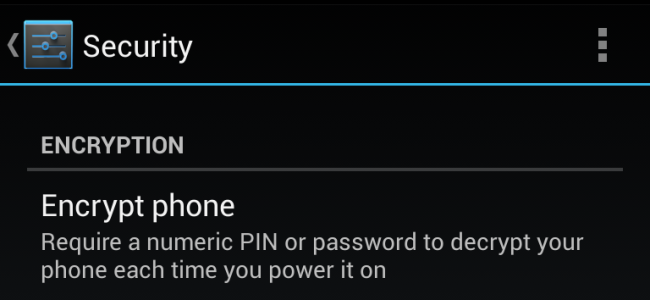Privacy advocates have a reason to exalt a new development at Google. The search giant has announced that it is bringing encryption as a default to all forthcoming versions of Android in a move to step up the privacy of the platform’s users. Though it’s long past due, it remains a welcome move.
The announcement comes hot on the heels of Apple’s similar transition for its iOS 8 to default encryption setting. Google actually implemented encryption beginning in 2011, but the tool was hardly noticeable for users to even activate since it was not in default mode at the time, earning flak for Google from various privacy and security advocates.

The move from both Google and Apple means users will see their devices automatically protected by the companies’ encryption tools. The next generation of Android is set for release in October, and for the first time, data will be protected through out of the box encryption. Even Google will then able unable to decipher data contained in a mobile device running Android.
Aside from the automatic security this gives to users, the move also means that police authorities will have a hard time to obtain access to personal information stored in devices under their investigation. The smartphone or tablet with default encryption can be opened only when a password is entered, leading to the viewing of photos and other data within the device’s internal enclaves. Even with a proper court warrant, the act of breaking into an encrypted device will be very hard. The downside is that it may slow down criminal investigations in which an electronic data is critical to solve cases.
The encryption software was said to be developed for several months, probably in the heat of the controversial NSA snooping programs as revealed by Edward Snowden. Since then, many technology companies in the United States have scampered to transition their products to encryption. This might be part of Google’s move toward that end.
Additionally, the sudden switch to default encryption might be a work in vigilant preparation for Apple’s approach to security as announced during the launch of the new iPhone 6 and 6 Plus. We know that Google and Apple are constantly in fierce battle for mobile phone supremacy.
However, Google will be unable to deliver the new version of the Android operating system dubbed L-release to all users, unlike what Apple does. Apple controls its hardware and software systems to delivering the updates all at once to users is quite smooth and direct.



